PVA – Petrochemicals – Technologies 19-09-2022 - Arhive
PVA – Petrochemicals – Technologies
Nylon6 – Naphtha – Petrochemicals
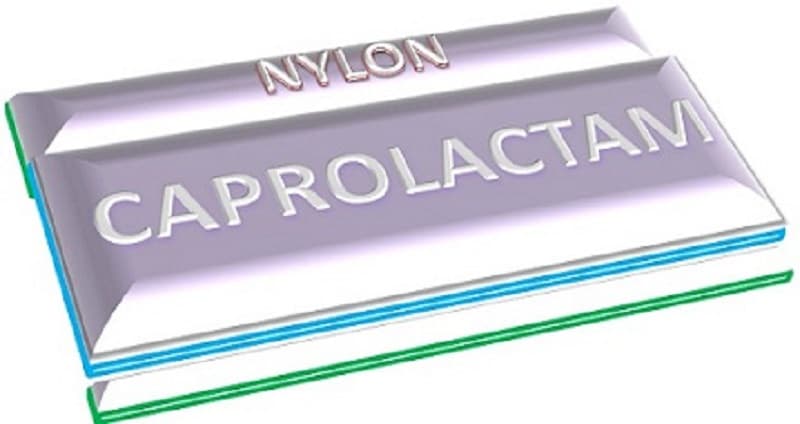
Crude Oil Prices Trend

Bioplastics International creates world’s first fossil fuel free sugar cane alcohol water soluble PVA to replace plastics, to save our oceans and planet
“No more confusion of the antiquated terms biodegradable, compostable, or bio based, the water soluble revolution has begun!”— Garrett ValentinoSCOTTSDALE, ARIZONA, USA, September 18, 2022 /EINPresswire.com/ — Our oceans have become the world’s largest landfill, accumulating more than 13 million tons of plastic annually, according to Bioplastics International1, an Arizona-based producer of the world’s first sugar cane alcohol water soluble PVA (Polyvinyl Alcohol) as well as many bio resins from plant starches. In an attempt to curb the overwhelming plastic pollution of our oceans, Bioplastics International has launched a fossil fuel free water soluble replacement for petroleum based plastics.
Garrett Valentino, CEO of Bioplastics International, said, “No more confusion of the antiquated terms biodegradable, compostable, or bio based, the water soluble revolution has begun!”
“Until now, all PVA has been made from fossil fuel natural gas. When fossil fuel carbon dioxide enters the ocean, it dissolves in saltwater.
First, it forms carbonic acid. Then, this carbonic acid breaks apart, producing bicarbonate ions and hydrogen ions. Ocean acidification results from an increased concentration of hydrogen ions and a reduction in carbonate ions due to the absorption of increased amounts of CO2. This results in the death of shellfish, corals, plankton, and other sea life. The pH levels of our oceans are lowered, and fish have a difficult time breathing.” Valentino said.PVA – Petrochemicals – Technologies
“Our PVA is made from sugar cane and alcohol, unlike all other PVA’s, which are made from fossil fuel natural gas,. it contains no plastic, no toxins, no heavy metals, no chemicals, and no bioplastic. It dissolves in water in minutes, leaving behind bio carbon dioxide through photosynthesis and water. It does not leave behind any microplastics or any residues, through crystallization, we can control the temperature when our sugar cane PVA will dissolve in any water, minutes, to months.” he affirmed.
He stressed that PVA is safe for human consumption, having been approved by the US FDA, and is currently used as a food additive and in the medical industry, in “advanced biomedical applications such as wound dressing, wound management, drug delivery systems, artificial organs, as well as a vital ingredient in the manufacture of paper and paint..” All this is due to its ability to retain water almost as well as natural cells, as well as its biocompatible, biodegradable, water soluble, and non-toxic behavior, elaborated Valentino
Furthermore, our sugar cane PVA is non-toxic to animals, claims Valentino, adding that it can be eaten by fish, birds, marine and land animals, and it will safely pass through their digestive systems.
The water-soluble, net zero carbon dioxide polymer can be mass produced in vast quantities and can be used for blown films, extrusion, or injection molding processes, virtually any product can be made from our sugar cane PVA. It is stronger and more durable than petroleum based plastic. Our current capacity is 180 tons per month, however this can be increased if needed, he said.
“The current ocean plastic pollution issue is beyond a serious one and must be immediately addressed. “We cannot ignore this, if nothing is done, by 2050 we will have more plastic in our oceans than fish. Approximately 70 % of the oxygen we breath comes from our oceans, and how do humans plan to survive?” said George Liu, Vice President of Bioplastics International.
“Our sugar cane PVA will become a movement, according to Valentino, due to increased public awareness over marine waste and destruction, consumer interest, and legislative regulations against polluting petroleum based plastics. Sugar cane PVA: is neither a fad nor a bioplastic, it is our future, the only way to stop the scourge of plastic pollution from destroying our planet. PVA – PVA – Petrochemicals – Technologies
Valentino stated that his company, which also produces polylactic acid (PLA) Bagasse, PBAT, and PBS, based products, has focused on manufacturing sugar cane PVA and products in order to help mitigate the problem of marine litter and destruction. We are environmentalists first. Our sugar cane PVA products will not contaminate the petroleum recycling stream, and can be rinsed down the sink drain, or hosed down in a parking lot.
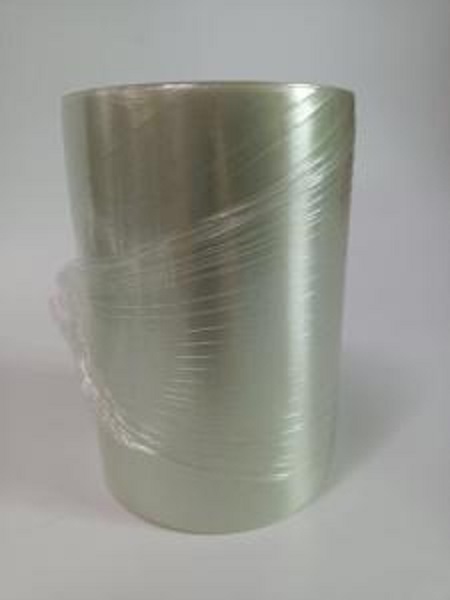
-Anellotech named winner of the PLASTICS’ 2022 Innovation in Bioplastics Award
Sustainable technology company Anellotech has been named the 2022 recipient of the PLASTICS’ 2022 Innovation in Bioplastics Award. The announcement, made by Plastics Industry Association (PLASTICS) on 15 September, came as part of the annual, online #BioplasticsWeek awareness and education event.
Anellotech won the award in recognition of the development of the first PET – polyethylene terephthalate – bottle made entirely from loblolly pine and other biomass feedstocks.
The company’s bio-based PET offers an alternative to conventional, petroleum-based material, potentially lessening the industry’s reliance on petroleum and natural gas as feedstocks.PVA – Petrochemicals – Technologies
Anellotech has developed and patented technology called Bio-TCat that converts biomass into benzene, toluene and xylene (including paraxylene, used in making PET), which are chemically identical to their petroleum-based counterparts. The result is a product with 70% lower greenhouse gas emissions than petroleum-based PET.
According to Anellotech, their product will enable the plastics industry to use the same plastic materials used today while producing them from sustainable biomass resources, dramatically improving the sustainability of the plastics industry.
David Sudolsky, CEO of Anellotech, accepted the award on behalf of the employees of Anellotech, “We’re excited to join our Bio-TCat Process development partners, IFP Energies nouvelles and Axens, as well as our strategic partner Suntory, in creating new routes to sustainable plastics,” he said.
“PET is the most recycled plastic and enjoys a lower comparative carbon footprint than metals or glass in most applications,” said Patrick Krieger, Vice President of Sustainability at PLASTICS.
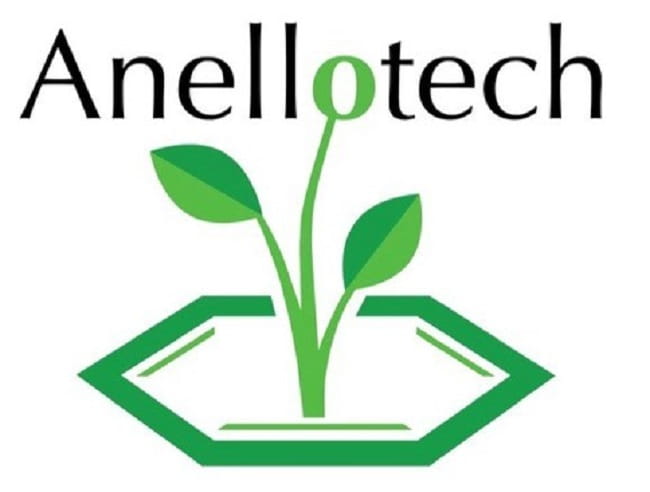
-Experts Warn US Is Falling Behind China in Key Technologies
At a gathering of current and former U.S. officials and private-sector executives Friday in Washington, concern was rampant that the United States has fallen behind China in the development of several key technologies, and that it faces an uncertain future in which other countries could challenge its historic dominance in the development of cutting-edge communications and computing technology.
The gathering was convened by the Special Competitive Studies Project, an effort spearheaded by former Google CEO Eric Schmidt, the stated purpose of which is “to ensure that America is positioned and organized to win the techno-economic competition between now and 2030, the critical window for shaping the future.”
Among attendees, the prevailing sentiment was that the nation’s ability to actually win that competition was under threat.PVA – Petrochemicals – Technologies
Dire predictions
A few days before the summit, the SCSP issued a report predicting what would happen if China became the global technological leader.
“Understanding the stakes requires imagining a world in which an authoritarian state controls the digital infrastructure, enjoys the dominant position in the world’s technology platforms, controls the means of production for critical technologies, and harnesses a new wave of general purpose technologies, like biotech and new energy technologies, to transform its society, economy and military,” the report said.
The report envisions a future where China, not the U.S., captures the trillions of dollars of income generated by the new technological advances and uses its leverage to make the case that autocracy, not democracy, is the superior form of government.
In the report’s grim vision, China promotes the concept of a “sovereign” internet, where individual countries limit the flow of information to their people, and where China develops and possibly controls the key technology supporting critical infrastructure in countries around the world.
Finally, the report warns that under such a scenario, the U.S. military would lose its technological lead over China and other competitors, and China might be in a position to cut off the supply of “microelectronics and other critical technology inputs.”
‘Nothing is inevitable’
In an address to the summit, White House national security adviser Jake Sullivan appeared to agree that the nation faces significant challenges in keeping pace with China in the development of new technology.
“We know that nothing is inevitable about maintaining America’s core strength and competitive advantage in the world,” Sullivan said. “And we know that it has to be renewed, revitalized and stewarded, and that is especially true when it comes to U.S. technological leadership.”
In China, he said, “we’re facing a competitor that is determined to overtake U.S. technology leadership and is willing to devote nearly limitless resources to do so.”
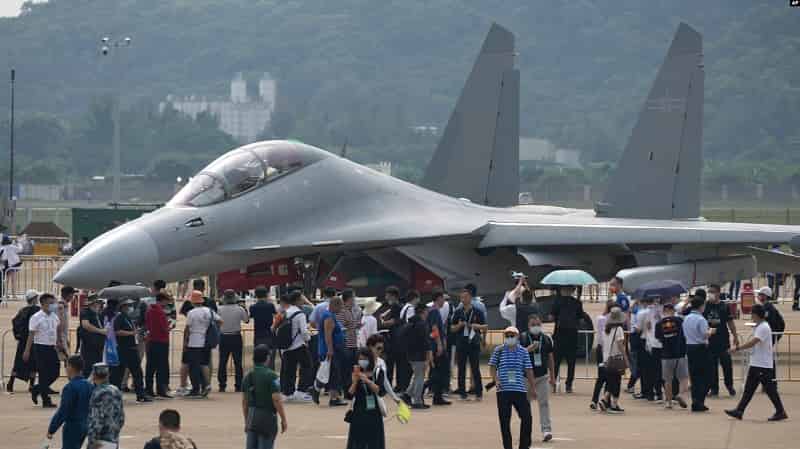
Following 18 months of construction and installation, the ALPLA Group and PTT Global Chemical are opening the state-of-the-art ENVICCO recycling plant in Thailand. With an annual production capacity of 45,000 tonnes of recycled PET and HDPE, it is one of the largest recycling plants for these plastics in Asia. With this plant, the two companies will strengthen the region’s circular economy and supply the growing markets with high-quality recycled material.PVA – Petrochemicals – Technologies
Thirty thousand tonnes of recycled, food-grade PET and 15,000 tonnes of recycled HDPE – the packaging and recycling specialist ALPLA and the chemical company PTT Global Chemical (GC) have realised Thailand’s largest plastics recycling plant of its kind. After around 18 months of construction, production is set to start at the ENVICCO joint venture. Located in an economic zone on the coast of the south-eastern province of Rayong, the plant is equipped with the latest recycling technology and production lines to manufacture high-quality plastic recyclates with approval from the USFDA.
‘Built in record time thanks to the excellent collaboration with GC, this highly modern plant is an important part of our recycling activities in Asia,’ said ALPLA Chairman Günther Lehner during the grand opening on 13 September. The opening was also attended, among others, by Kongkrapan Intarajang (Chief Executive Officer and President, GC), Dietmar Marin (ALPLA Managing Director Recycling) and Bernd Wachter (ALPLA Corporate Director Circular Economy & Recycling Asia).
‘Demand for recycled, sustainable packaging materials is rising sharply in Southeast Asia, and high-quality plastics have a key role to play here. With this new plant, we are now applying our many years of expertise in the treatment and processing of packaging made from post-consumer recycled resins in Thailand,’ explains Bernd Wachter. ‘This joint venture is a truly circular, eco-friendly project creating a comprehensive value chain for plastics in Thailand and is an excellent example of the worldwide use of Austrian green tech know-how,’ adds Georg Weingartner, the Austrian Commercial Counsellor in Bangkok.
Successful partnership
ALPLA contributes more than 25 years of recycling experience to the joint venture. It will supply its production facilities in Asia with recycled material and is also fostering the circular economy at the local level. With the plant, majority shareholder GC supports sustainable development in the region, moving it towards resource-conserving business and lifestyles.
‘Today, GC is proud to reveal that ENVICCO is ready for commercial operation. Used plastics within the Kingdom of Thailand will make up 100% of the raw materials processed by ENVICCO’s cutting-edge production technologies to transform used plastics into valuable products,’ says Kongkrapan Intarajang. ‘The ENVICCO production plant is part of our long-term circular economy strategy to fully realize GC’s value chain. It also has the added benefit of creating jobs within the community while simultaneously aligning with the Thai government’s Bio-Circular-Green Economy Model.’ The ENVICCO team will comprise approximately 180 employees at the start of production.
Significant expansion potential
The 30,000-square-metre plant is on a plot of land measuring a good 90,000 square metres at the Map Ta Phut Industrial Estate. There is, therefore, also space for future capacity expansions. ‘We have long-term plans to promote the bottle-to-bottle cycle not only here in Thailand, but across Asia and other regions around the world. Carbon emissions and waste can be reduced through optimised resource consumption,’ emphasises Dietmar Marin. PVA – Petrochemicals – Technologies
Global expansion of recycling activities
In early 2021, the ALPLA Group announced that it would invest an average of 50 million euros a year until 2025 in the ongoing expansion of its recycling activities. In particular, it plans to globalise its activities in the area of high-quality recyclates to close the materials cycle in as many regions as possible. In total, the annual production capacity of ALPLA’s recycling companies and cooperations around the world amounts to approximately 203,000 tonnes of rPET (recycled PET) and 74,000 tonnes of rHDPE (recycled HDPE).
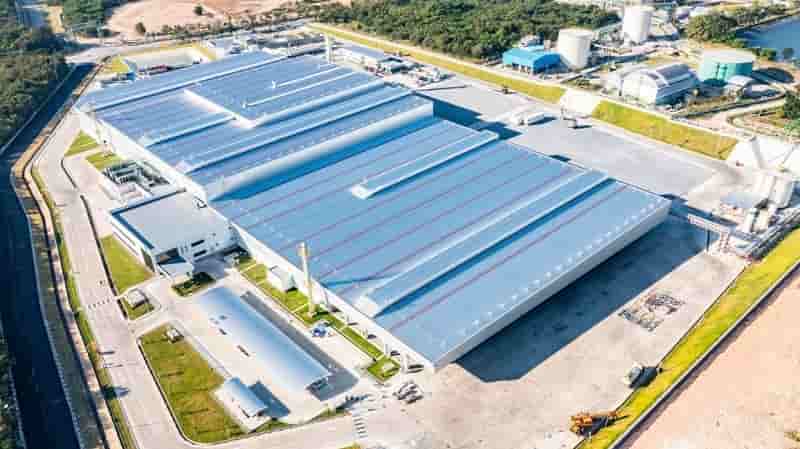
-Toray Expanding Airlite™ Automotive Interior Sound Acoustic Insulation Business in Europe
Toray Industries, Inc., announced today that subsidiaries Toray Textiles Central Europe s.r.o. (TTCE) and Toray Advanced Materials Korea Inc. (TAK) have set up new facilities in the Czech Republic to expand the Airlite™ automotive interior sound acoustic Insulation business in Europe. This material enhances passenger comfort by suppressing noise from driving, vibrations, and from outside vehicles. This new facility at TTCE’s facility in the Czech Republic will go on line in October this year, with an annual production capacity of 1,200 metric tons. PVA – Petrochemicals – Technologies
Europe has spearheaded efforts in the developed world to steadily tighten automotive noise regulations, including for internal combustion engine models. Demand should surge for electric vehicles in the next few years. These automobiles are essentially free of engine sounds, so drivers and passengers are more likely to notice road and tire noises. Quieter cabins feel more comfortable and luxurious. Markets for top-performance sound absorbing materials should thus continue to grow. Moreover, as the growth of the Urban Air Mobility (UAM) industry using propellers is expected in the future, the lightweight sound-absorbing application field will be further expanded.
Airlite™ is a melt-blown non-woven sound-absorbing material made of lightweight polypropylene and polyester. Melt-blowing extrudes melted polymers through nozzles and sprays them to form a nonwoven fleece. Airlite™ delivers exceptional sound absorption across a broad frequency range. It is lighter than conventional counterparts, thereby reducing energy consumption from driving.
The new Airlite™ facilities will complement TTCE’s airbag fabric operations, helping it to expand its automotive materials business. TAK looks to leverage the new facilities to bolster its automotive interior sound-absorbing materials business in Europe and step up efforts to serve automakers and leading parts manufacturers as Europe’s electric vehicle market grows.
Toray will develop products incorporating recycled materials and other eco-friendly offerings to add value and match customer needs. It will collaborate with customers in its drive to reduce environmental impact and materialize a sustainable economy, transforming societies in keeping with its commitment to innovating ideas, technologies, and products that deliver new value.
Under the Toray Group Sustainability Vision, the company aims to leverage its innovative technologies and advanced materials in creating solutions that are essential for the international community to overcome the challenges of pursuing sustainable development.
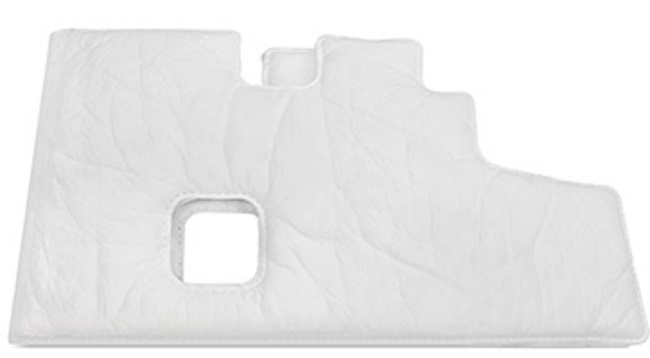
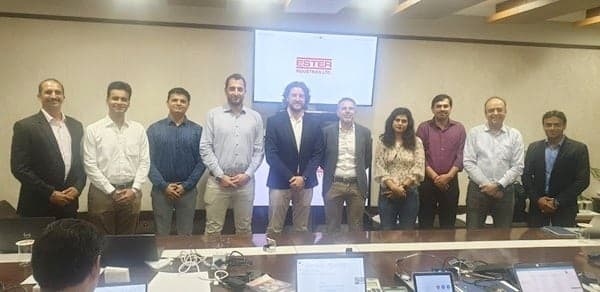
-VIVA Textiles the Name of Quality and Sustainability in the Textile Industry Operating from China
VIVA TEXTILE is the market leading exporter of embroidered fabric and digital printing. VIVA TEXTILE is operating from the world’s no 1. exporter country China. VIVA TEXTILE has a vast experience of 12 years, working in the textile industry sector. During this long journey of more than a decade VIVA TEXTILE has shown a recommendable progress and delivered numerous successful projects and is still on the way to growing its market occupancy. Closely working with well-known fashion brands making VIVA TEXTILE more competent and trustworthy exporter of embroidered fabric and customised digital printing designer all over the world including China, USA, Paris, Europe and many other regions of the world. PVA – Petrochemicals – Technologies
VIVA TEXTILE has set up its own product standards, quality benchmark, working style and understanding of beauty. VIVA TEXTILE has a well-recognized and skillful professional team of fashion designers and wholesales all over the world. VIVA TEXTILE identifies for providing high quality, fashionable designs in very affordable market leading, competitive prices.

PVA – Petrochemicals – Technologies
